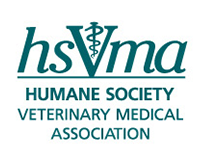Veterinary Student Tackles Issue of Rabies Vaccination Exemption in CaliforniaApril 25, 2011 by Lisa Lippman I was a criminal. At any moment, I could be cited for breaking the law. You would probably like to know what I, a law-abiding citizen and veterinary student at the top of my class, did to get into so much trouble.  Lisa Lippman and Max, who recently passed away. In loving memory of her canine companion, Lisa continues to work hard for the passage of this bill. Jeff Malet/Western University of Health Sciences It’s simple—I tried to do the right thing and get my 11 year-old dog, Max, a license in the state of California. Of course, it's not really that simple. Max, like any good dog belonging to a veterinary student, often tried to educate me through his ailments. But when he developed Pemphigus foliaceus, an autoimmune skin disease, I got more than just an education on his condition; I also soon found myself involved with state politics and the Humane Society Veterinary Medical Association. Vaccination could be riskyPemphigus foliaceus is just as nasty as it sounds—the body’s immune system attacks the superficial skin layer, causing blisters and ulcerations that can become infected. For Max, stimulating his already-overactive immune system with a rabies vaccine could risk his life. His veterinarian agreed and refused to vaccinate him, even if I had wanted to. However, the licensing body where I live in California not only demanded proof of rabies vaccination to license Max, but they also threatened to issue me a citation for violating the law. While I am thankful for the rabies vaccine, which has nearly eradicated the disease in the United States and thus allowed the human-animal bond to flourish, the law mandating vaccination, which was created in the mid 1900s, is flawed because it does not take ill or immune-compromised animals into consideration. In addition, insisting that ill or immune-compromised dogs be vaccinated not only puts them at risk, but it requires a veterinarian to commit malpractice and break their professional oath, since the directions for administering the vaccine clearly state that it is for use in healthy dogs only. Getting involved with Molly's BillShortly after this licensing issue came up, my mother showed me an article on California Assembly Bill 258, otherwise known as Molly’s Bill. It was about a family and their dog, a Springer spaniel named Molly, who were going through a similar situation and fighting to make a difference. With the support of my fellow veterinary students and professors, I decided to contact not only Molly's family, but also California Assemblyman Curt Hagman, who authored the bill. I started a petition in support of the bill, gathering more than 2,300 signatures in just a few weeks, and also prepared a presentation on the topic for my veterinary issues course. In addition, I was invited to speak at the press conference that re-introduced Molly’s Bill. Before long, a reporter at my school wrote an article about my involvement, which caught the attention of HSVMA, a sponsor of the bill. They contacted me and have given me the opportunity to testify at an upcoming hearing in Sacramento. How will A.B. 258 work?A.B. 258 is designed to protect those pet owners who are willing to comply with the requirements to exempt their companions; it is not intended to encourage people to break the law. The life-saving medical exemption proposed in A.B. 258 would be given by a veterinarian on a case-by-case basis and would protect elderly, immune-compromised and chronically ill dogs in California. The dogs protected by this bill would be closely supervised and not allowed to roam freely or interact with wildlife, which could put them at risk for coming into contact with the rabies virus. What can you do?A number of states, including Alabama, Florida, Colorado, Connecticut, Maine, Massachusetts, New Jersey, New York, Rhode Island, Virginia and Wisconsin, already allow medical exemptions from rabies vaccination in their dog licensing programs. If you live in California, please consider submitting a letter in support of A.B. 258. More information can be found on the website of Assemblyman Curt Hagman. If you live in a state without an exemption, please visit rabieschallengefund.org for more information on this issue. To sign my petition or view pending efforts to introduce similar legislation in other states, please visit change.org. Lisa Lippman is a student in the class of 2013 at Western University of Health Sciences, College of Veterinary Medicine. |
